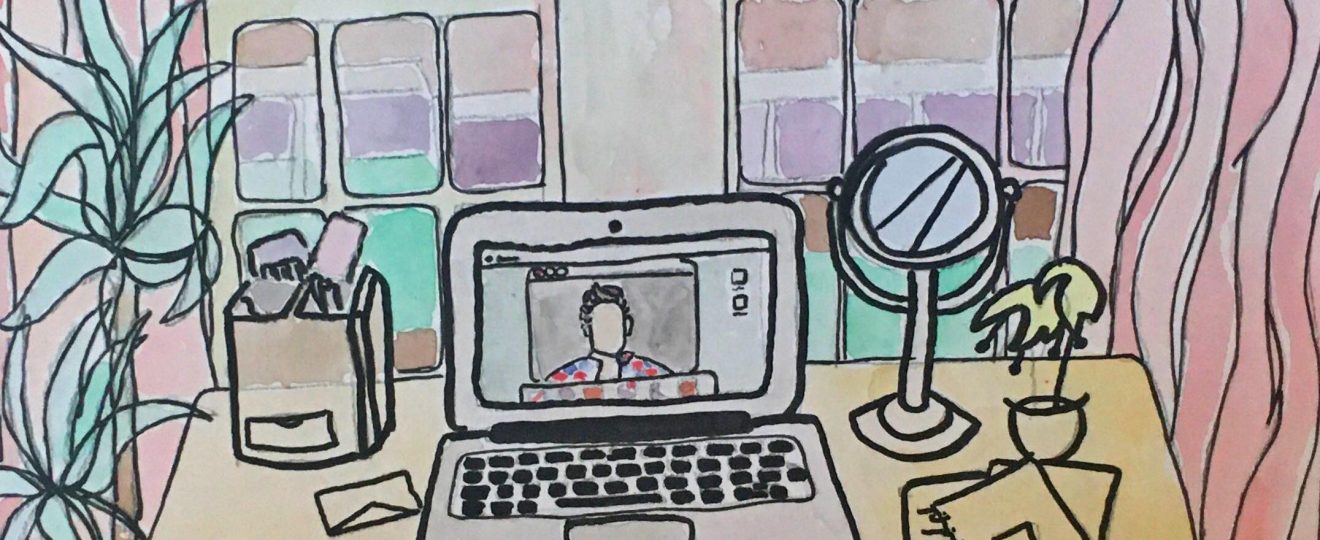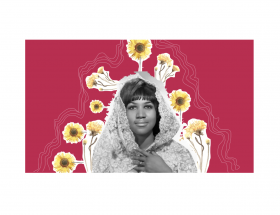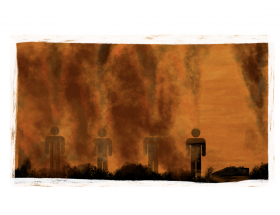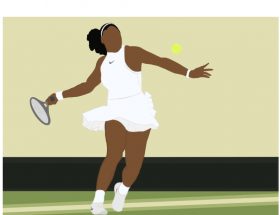Upon a stroke of luck, I got the rare opportunity to have a Skype interview with an English writer, historian, presenter, and journalist Dan Jones. I couldn’t believe it when I spotted him across a pub one night in the small Scottish coastal town where I study called St. Andrews. Now, I’m entirely aware that there are many sad souls out there that haven’t watched any of his programs on channel 5 or Netflix, but however underwhelming this may come across, running into a presenter from a tv show I used to binge-watch in bed stuffing my face with popcorn was incredibly unreal to me. With that said, it might have been my own natural courage or the two double gin and tonics I drank in that last hour, but I just knew I had to awkwardly say hello and ask him to let me interview him for BRIZO. He agreed!
So there I was, a third-year undergraduate, an amateur artist who didn’t (and still doesn’t) know the first thing about journalism, and a professional bullshitter asking an esteemed journalist for an interview. This was sure to be a very interesting experience for me to say the least and as expected, it was exactly that and so much more.
Question 1: “When did you first realize that history was a passion of yours?”
Dan: Uh, Disappointingly late. I think people tend to assume that I must have been some sort of historical “super-spod” as a child. I couldn’t care less about history to be honest, until I was in my mid to late teens. When I was doing my A-levels, I had a great history teacher. As a result history became my favorite subject. He was brilliant. We were studying the usual menu of Tudor and Nazi history but he had a good way of teaching it in a very personalized way. He personalized the material by making it ‘gossipy’ and fun. He was definitely teaching the subject he was made to teach. And we just clicked. I then went to study history at university, and again, it wasn’t like I got to Cambridge saying ‘all my life I’ve wanted to study history’ or ‘I’m here to study my favorite subject from school’. I actually had no idea what I wanted to do with my life. So it still is somewhat of a surprise to me that I find myself banging on and on to people about history in books and on television. A lot of my peers and contemporaries, of whom I like and admire a lot, probably would not give you the same answer. They’d tell you something along the effect of “oh you know… I was always forcing my parents to take me to … cathedrals’ or something along those lines. I mean, I certainly don’t go on holiday with a stack of history books. I’m interested in history professionally and personally but I’d rather not read history books in my leisure time but that’s changing slightly as I get older. I’m now getting an old-goober-person instinct to go immediately into a museum as soon as I see one. It’s weirdly unconnected to my profession. I’ve been on book tours, as you know, and whenever I have a free hour I think ‘maybe I can go to an art gallery or a history museum’ and then I think ‘where has this come from?’. I’m in my late 30s now, so approaching midlife… or in midlife… could be late life, who knows?
“Surely not late life, Dan.”
Dan: I’ve now starting to do things like gardening. I’m taking great pleasure in planting and weeding. That’s an old person’s activity.
“What, weeding?”
Dan: Gardening in general and you can’t do gardening without weeding. Unless you’re going to put a lot of bark chip down on your flower beds to suppress the weeds but even with that some weeds will still peek through, like dandelion and such. So, you’re gonna have to do some weeding when you garden.
“Yeah, that’s a pretty old person thing to know.”
Things then took a turn for the existential.
Dan: …I’m turning into my father. If you told me ten years ago I’d be saying these things sincerely, not only would I be unwilling to believe you but I’d be incapable of believing you. As you get older you surprise yourself… this may go longer than you thought.
It was here that I began to realize that the simple, short and highly-structured interview I had planned in my head would probably not be those things. I’m someone that is naturally prone to being sidetracked. It dawned on me that Dan Jones possibly does a lot of side-tracking. But maybe this self proclaimed “old-goober-person” had charmed me. Maybe I was ready to release my high-strung expectations of a rigid interview and listen to Dan the Goober-Man talk about weeds and getting older. Resigning myself to my inner feeling of comfortable chaos, I grabbed a blanket and settled deeper into my chair. As time passed and our conversation progressed, I eventually got to learn a bit more about how Dan arrived at his current career path.
Dan: When I went to read history in university, I was shit out of ideas. I specialized in medieval legal history. Most people doing that went on to become lawyers but I couldn’t be bothered to fill in the forms for law school. I took one look at the forms and was like, ‘oh my God! Look how much paper work there is!”. They must do that as a deterrent. It’s probably just the first hurdle. So I didn’t do that. My girlfriend at the time was sick of my bullshit at that point, and applied on my behalf to journalism school after I graduated. So I went to journalism school for a bit and then dropped out because I didn’t really like it. Nonetheless, I got jobs in journalism, jobs that I barely qualified for. Honestly, I was not qualified to do anything I did in my 20s and still I’d consider myself scarcely qualified, in a professional context, to do much. I was going to be a lawyer. I didn’t do that. I was going to be a journalist, and I sort of did that. I do that less than I used to. For ten years I wrote a newspaper column. I’d say up to a point that was journalism. It wasn’t really reporting, it was simply writing and being published in magazines and newspapers. That’s broadly journalism, I suppose.
I started to sweat at the mention of unqualification. I was suddenly aware that I’m not even qualified to pretend to interview this guy. I’m an artist for a magazine, not a writer, and I’m attempting to interview a professional who has written for publications like The Times… really, I had no accomplishments to even begin to pale in comparison. I smiled. “Haha, okay.”
Dan: It was great training to be a writer. It was a good experience to be forced to write thousands of words every week on given topics. I’ve written eight history books, so I suppose I’m a historian as well. But I can’t write poetry.
“You can’t? Have you ever tried?”
Dan: Maybe twice. Tried to write two poems. One when I was about 17. It was sort of like… have you ever heard of the band Suede?
And so we proceeded to discuss the 90s popular band (of whom I had never heard of until that very moment), steadily straying further and further from the light of my first question. Then curiosity struck. Watching Dan on my computer screen looking so accomplished seated in his beautiful home office I couldn’t resist asking, “You ever had an emo phase?”.
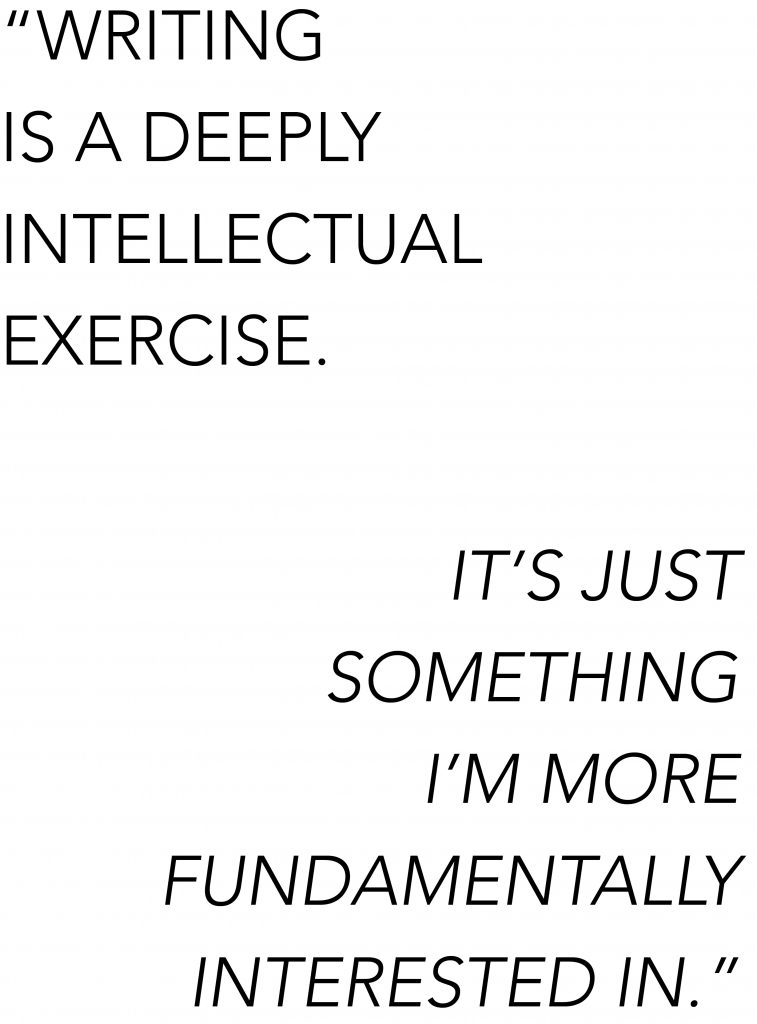
Dan: Emo wasn’t even a thing when I was growing up. That word did not exist. It was the Goths when I was growing up. Goth culture was heavily consumed by heavy metal culture. Now, Emo has separated itself out of goth culture. It’s a genre of its own. You don’t have to like heavy metal music, so the categories has changed somewhat. But yeah I guess I would’ve been a bit emo is the short answer. But in 1990s sort of way. It’s a different category I think.
There was some talk of emo culture, which weirdly led to a discussion the Wu-Tang Clan. I couldn’t believe Dan Jones was schooling me on 90s music. Still, I was a willing student. Miraculously, conversation gave way to my second official question.
Question 2: “What’s your favorite time period to write about?”
Dan: The Middle Ages.
“Why? What era was the Middles Ages anyway?” Clearly I’m no historian.
Dan: Its broadly defined as the 5th century AD to the 15th century AD. I write about the later Middle Ages. My specialty is the eleventh to the fifteenth century. Occasionally I’d stray into the 16th century as well but any further than that I’m no good at. Although I have done a book of 19th and 20th century history, The Colour of Time. But that’s a side project. I’ll tell you why I like the Middle Ages. I feel like that period is a nice balance between being ostensibly familiar and recognizable. Also being totally fucking mental. That time was weird.
“What’s the weirdest thing you’ve come across learning about that time?”
Dan: In Crusaders, there’s a bit where a guy gets into a fight with a bear. Not on purpose! He’s attacked by a bear and fights it off. And I suppose that still happens today so I’m not sure why I find that so weird. Whenever anyone asks me that question that’s all I think about. I don’t know, maybe it’s not that weird.
“Rare, but I don’t find it that weird.”
Dan: In the early 2000s, when you were a child…
Nice.
Dan: “There was a programme on television very briefly called Man v.s. Beast. You can find it on YouTube. It documented competitions between man and beast. I’ll give an example…”
I was on the edge of my seat the whole time. Dan told me about orangutans competing against professional Olympians to see who could hang from a bar longer. His favorite episode was of a Japanese competitive eater, Kobayashi, competing in a hot dog competition with a Kodiak Bear. The Kodiak Bear won, unsurprisingly.
Dan: “Of course the bear won! It was 100 hot dogs! But the reason I’m telling you this is because this is the opposite of what happened between the man and the bear in Crusaders. In Man vs. Beast, its obviously a set up where the bear is not aware that there is a competition at all. In Crusaders, a bear just attacks a man and they have a fight because the person decides to defend themself. In retrospect, as I tell the story, the weird thing I’m thinking of is not the person fighting the bear in the Middle Ages, it’s the hot dog competition between the man and the bear in that television show. I don’t think I can explain myself more than that.”
Question 3: “Outside of the accolades listed on your Wikipedia page, what other things should people know about you?”
Dan: Have I not told you enough already? Uh, I used to love Eminem, I watched Man vs. Beast. What else is there to know about me? I’m a very good swimmer. I taught myself in recent years. I was a poor swimmer until recently, three years ago. It started with a cold. It was a head cold. So I didn’t want to go to the gym and run or row because I was feeling poorly. I did want to keep up with my physical exercise, however. So I thought I’d go for a swim because that’s gentle. But I was a poor swimmer. I could only swim three or four lengths before I started to feel exhausted and I was drowning. So I was determined to teach myself how to swim. Now I can swim a mile off the bat, no problem. Not in an Olympic record time but I can do a good 32 to 33 minute mile. Nothing that would set the world on fire but I have really paid attention to my craft. If I see someone swimming a bad front crawl, I become so uncomfortable. I want to go and stop them and tell them that you can’t lift your head back when you breathe. Technique is everything. How many strokes do you do between breathing when you front crawl?
I thought this was a great opportunity to mention to Dan that I can’t swim to save my life. “Can you show me how you do it right now?”
Dan: No that would be absurd… but I’ll give you some tips.
And so Dan shared his top tips on swimming with me. Demonstrations and all. I can’t stress how important breathing is when it comes to technique. You aren’t meant to lift your head up when you breathe. Never do it. Lift your head to the side out of the water. This is the Dan Jones way. There was another nugget of wisdom I learned as well.
Dan: Not only is it excellent physical activity, you know, it’s a low impact strength and great cardiovascular exercise, but I also think it’s wonderful meditation. You can’t check your phone when you’re underwater. For half an hour or so, you are forced to listen to your thoughts.
No wonder why he’s so chill, the meditation guru our generation deserves.
Question 4: “What’s the juiciest secret you’ve learned filming your twelve part series, Secrets of Great British Castles.”
Dan: Well this is not really all that juicy but it’s kind of a secret. Dover Castle was great because not only does it have the medieval stuff going on but it had a big role in Dunkirk. It functioned as the command centre during the Battle of Dunkirk. Later, a network of nuclear bunkers were built in the Dover Castle bunkers, which would have been the command centre for the South East in World War Three. You can still go down there to explore. All that is pretty cool. The thing that I was most astonished to learn was that the entire nuclear bunker under Dover Castle was essentially futile. It’s futile because its all limestone. There are white cliffs at Dover, which are porous, so water can get through. Had there been nuclear war and nuclear rain came down, it would have basically seeped through the goddamned rock. Radiation would have gotten through. That really stuck on me. I just thought, well that was an inappropriate place to build a nuclear bunker. But that’s not very juicy is it?
No not all that juicy, but a sobering fact, I thought. “I’d say that’s interesting… well I just feel like with a name like Secrets of Great British Castles you’d have some more scandalous secrets to spill.”
Dan: You have a lot to learn about television. There is not an official list but there might as well be of words you have to put in TV show titles to make people watch them. Secrets- doesn’t matter if there are no fucking secrets in the show. You’re in big trouble if you shy away from these platitudinous cliches. Treasures. Secrets, Treasures, Mysteries, um, True Stories. So, in regard to Secrets of Great British Castles, when we were filming it that was not its working title. Its working title was Castles.
Castles? Just Castles? This was the show I binge watched a year ago. There was no way I would have watched that show if the title was that boring. I think he had a point here.
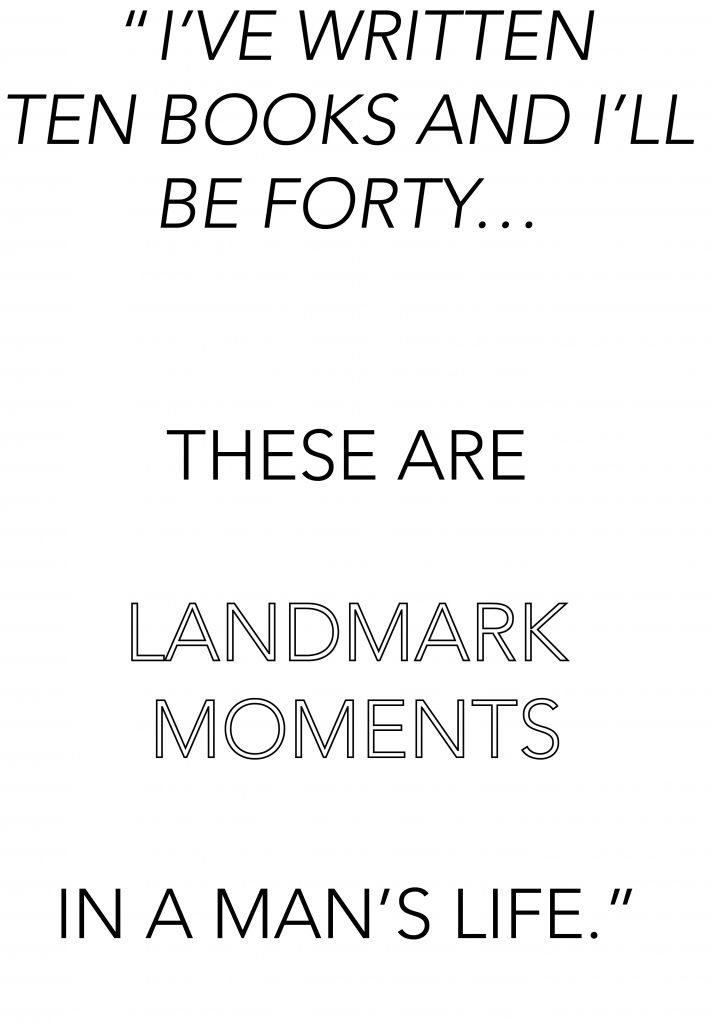
Question 5: “Do you prefer writing or presenting history?”
Dan: Writing. Presenting is fine. It’s fun. It’s become an important part of what has become my career. Its enjoyable sometimes but I mostly enjoy the craft of writing. Writing is a very deeply intellectual exercise. It’s just something I’m more fundamentally interested in. What I enjoyed about presenting was that I did quite a lot of writing for the show. I enjoyed that puzzle. Writing for TV shows is difficult and requires a testing combination of lateral, visual and structural thought. It requires a great economy of storytelling and actual scripting. It is challenging… Television is utterly linear in story telling and it has to be incredibly clear. Television is not good with subtly but it is an extremely good way to tell big stories. So I particularly enjoyed writing the series but the presenting…I’m just happy to do it. They pay you well to do it. I wouldn’t like to do it full time though. I’ve made 40 to 50 hours of television. I’ve written an average of 100,000 to 120,000 words for each of my eight books. I’ve got ten years of newspaper columns and 15 years of magazines and other journalism. I’ve written for telly. And of course, I’ve written two poems as we’ve established.
Cue the Suede flashback.
Dan: That’s millions of published words. It’s an incomparable amount of more work I’ve done and so I’m more adept and at home in doing it.
Question 6: “Would you rather be one of King Henry VIII’ s wives or would you rather live through the Dark Ages, particularly when the Black Plague was at its height?”
Dan: First, I’m going to have to upbraid you on your use of the Dark Ages.
“Oh? Why?”
Dan: It implies a retreat from knowledge. It implies a contemptible, low point in society. It does a disservice from the actually quite inventive and dynamic culture of Medieval Europe. Putting that aside, I know what you’re talking about.
Fair. “Mhm.”
Dan: Let’s talk about this statistically. Henry the 8th’s wives. Divorced, beheaded, died, divorced, beheaded, survived. There’s a 50% survival rate. Divorced, divorced, survived right? The ‘died’ was because of child bearing but the two ‘beheaded’s… those were unfortunate. Let’s say two in six is the rate of death because you’re married to Henry. There’s 33.3% in being killed as a function of marrying Henry the Eighth. Between 40% and 50% of Europe was killed by the Black Death. By definition, therefore, you’re safer being a wife of Henry VIII than being a victim of the Black Death between 1347 and 1349. On the basis of pure statistics I am going to be a wife of Henry the VIII. Don’t get me wrong, I do not want to have sex with Henry VIII. I find that idea abhorrent. That being said I think the white privilege that would automatically attach to an aristocratic white woman married to a king also mitigates against the possibly higher than average statistical probability of death when compared to marrying anybody except Henry the VIII.
I stopped listening after the term “white privilege” was mentioned. Dan ‘Woke’ Jones. I loved to see it.
Dan: …is that satisfying?
“Yeah! That was really in depth, thanks for walking me through that decision.”
Dan: Science.
“Science! Wow that leads us to our last question.”
Dan: Gosh, we got there so quickly.
“I know it only took us forever!”
Question 7: “We’ve talked about your gardening career and your swim career. What’s next for you on the horizon? Can you see yourself eventually reinventing yourself professionally?”
Dan: Possibly! I’ve got two more history books to produce. One of which I should have been working on right now. I then have another big history book based on the Middle Ages to write next year. It comes out in 2021. After that I don’t know. I don’t know. I’ve written ten books and I’ll be forty… These are landmark moments in a man’s life. So it could be that I’ll do something different.
“Off the top your head right now, if I had to make you choose that ‘something different’. What would you be doing? You have ten seconds to answer.”
Dan: I’d become a producer of a TV drama show. I’d write some historical novels. Am I still allowed to do that? It would be fiction.
I think I expected him to think a bit more outside the box. I prompted him a bit more. He ruled out swimming (too old), he said he couldn’t do any sort of technical job (unqualified), and he wouldn’t revist law either (too late.)
Dan: I wouldn’t mind being a chef. But again I’m too old… I mean, what can I do? You come to this point in life where its too late to change career. This is it now. Better make a go of it… motivating right?.. The way that life is weighted is not equal across the decades. Learning capacity and physical energy is front loaded in life. I’m not going to go radical. I’m not going to become a heart surgeon. At best, maybe I can go to a technical college and learn to be a plumber. There are a lot of careers you must go through to return to the earning capacity. No, I think it’ll just be versions of this from now on.
“Wow. How do you feel about that?”
Dan: I have a great life. I have a fantastic life. I wouldn’t change it. Maybe that’s a part of it. Maybe I just don’t want to change. So I’m creating reasons to not directly answer your question.
Touche. “I respect it.”
Dan: I hope that was helpful. I don’t know what the fuck you’re going to do with all of this. This was some crazy bullshit.
Crazy? Yes. Bullshit? No. This was far from it for me. What an experience! Did I ever think I’d have the chance to look beyond the entirely two-dimensional scope I had of a presenter I watched on Netflix? Absolutely not. Was this occurrence premeditated? As last-minute as premeditation could be, I guess. I just couldn’t believe I managed to (kind of) pull this off.
Logging off of Skype, I felt grateful. My first interview ever (that really was more of a casual conversation) worked out way better than I could have anticipated.
Before any of this happened I bought Dan’s latest book Crusaders and I’d just like to mention that I totally recommend it. It’s just not your average mundane history book, it’s absorbing. The era being written about is already compelling and becomes even more so under Dan’s unique writing style. Go out and get a copy!
art by Desiree Finlayson

